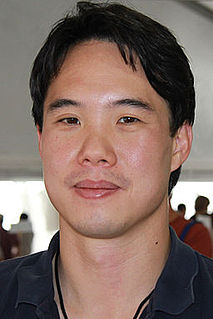A Quote by Neil deGrasse Tyson
How many times have you heard a person in a workplace say, "I wasn't trained for this!" That's an impossible reaction from a physicist, who would say, instead, "Cool. A problem I've never seen before. Let's see how I can figure out how to solve it!"
Related Quotes
Don't criticize, condemn or complain. Constantly criticizing, condemning and complaining is what breaks most relationships. Instead of criticizing and condemning, figure out how you can solve the problem together. Instead of focusing on blaming the other person for what they did wrong, focus on how you can avoid the problem next time.
How many times have I failed before? How many times have I stood here like this, in front of my own image, in front of my own person, trying to convince him not to be scared, to go on, to get out of this rut? How many times before I finally convince myself, how many private, erasable deaths will I need to die, how may self-murders is it going to take, how many times will I have to destroy myself before I learn, before I understand?
When I started out as an actor, I thought, Here's what I have to say; how shall I say it? I began to understand that what I do in the scene is not as important as what happens between me and the other person. And listening is what lets it happen. It's almost always the other person who causes you to say what you say next. You don't have to figure out how you'll say it. You have to listen so simply, so innocently, that the other person brings about a change in you that makes you say it and informs the way you say it.
The interview process tests not what the applicant knows, but how well they can process tricky questions: If you wanted to figure out how many times on average you would have to flip the pages of the Manhattan phone book to find a specific name, how would you approach the problem? If a spider fell to the bottom of a 50-foot well, and each day climbed up 3 feet and slipped back 2, how many days would it take the spider to get out of the well? .
You
cannot assume that somebody can define you. You cannot
assume that the other person is right. No matter how they
say it to you, no matter with how much force they say, ‘Oh
my god, you’ll never make it; oh my god, you’re not bright;
you could never do this’—that’s one person. I can’t tell you
how many people told me I would never be an actor.
I need to say how I feel.aIf you were a political person before, and you just happened into a movie, to stop being a political person makes no sense. I always laugh and say, 'Dudes, if I have to choose, I'm a political person first. I would never do another movie again and be completely happy.' I need to say how I feel.
I'm friends with a lot of writers and so many of them say how much they hate signings and how they leave after a certain period of time. But what is so hard about sitting there while people tell you how much they love you? And if you don't like it, well, learn to like it. I try to take one person at a time. I never look down the line to see how many more people are left. And I always try to make people talk about something besides whatever they planned to say.
When I was first thinking about what would become Venture for America, I was trying to figure out how to solve a problem - that our top young people were being driven to roles that did not, to me, address the needs of our time. That VFA would be a non-profit just seemed like the most efficient way to solve the problem.





































